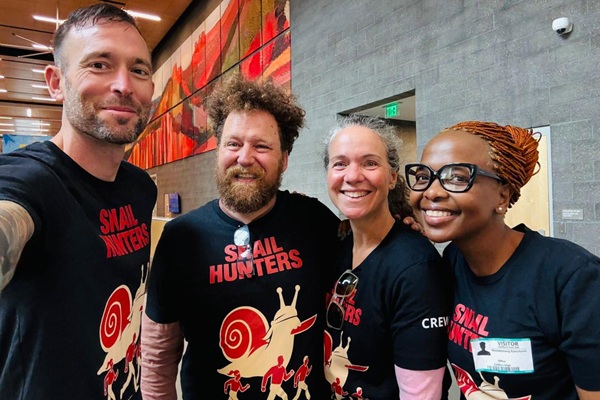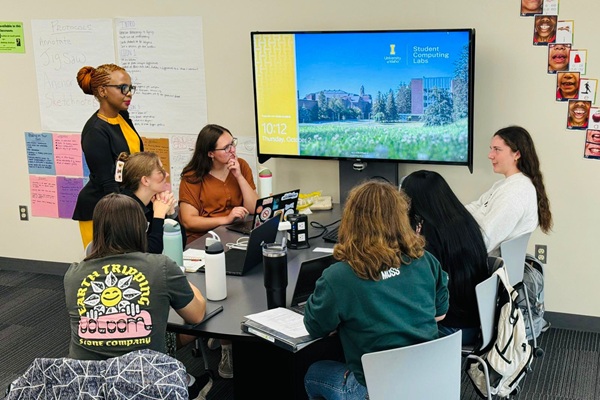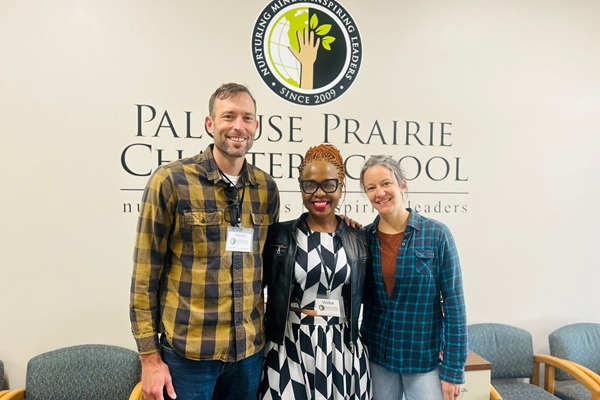Dr Moleboheng Ramulumo-Mokhele, senior lecturer in the Faculty of Education and member of the Research Unit for Self-Directed Learning at the North-West University (NWU), recently returned from her visiting scholar engagement at the University of Idaho (USA), where she explored new approaches to early-childhood science education.
During her visit in the Department of Curriculum and Instruction in the College of Education, Health and Human Sciences, Dr Ramulumo-Mokhele received a warm welcome from Prof Aleksandra Hollingshead, the department chair, who invited her to both the department and her home for dinner. “It was an incredible way to connect personally and professionally, and it made me feel part of the team from the start,” she said.
“The visit provided an opportunity to share ideas, strengthen research partnerships and explore new approaches to teaching science to young learners,” said Dr Ramulumo-Mokhele. She worked closely with Prof Brant G. Miller, Professor of Science Education, to explore ways of expanding her Renewable Rangers project, an educational game she developed to introduce young learners to climate-change concepts through South African cultural contexts. Their shared research interests in environmental and science education, experiential learning, and the integration of technology and culture in STEM education created a strong foundation for this collaboration.
“Our discussions centred on curriculum design, pedagogy and strategies to make science learning more interactive and inclusive through experiential learning,” she explained.
Renewable Rangers emphasises child-driven exploration, allowing young learners to engage with environmental and renewable energy concepts through storytelling, play and digital interaction. “Situating complex ideas such as solar, wind and water energy in playful narratives can help children make sense of abstract science concepts through lived experience,” Dr Ramulumo-Mokhele said. The game also reduces linguistic barriers, allowing children to learn through visual and symbolic cues.
Future collaborations include working with Dr Shiyi Chen to study children’s metacognition during gameplay, a focus that was also highlighted by Prof Raymond
Dixon through his inspiring guidance, and with Lena Udekwu to develop a wordless book that introduces climate-change concepts through experiential learning. These initiatives are all part of the broader Renewable Rangers project.
Dr Ramulumo-Mokhele’s engagement at the University of Idaho reinforced her focus on accessibility in education and the importance of designing learning experiences that support children’s understanding through visual and embodied engagement.
Her participation with the Snail Hunters research team at the Bend Film Festival offered additional perspectives on creative approaches to science education. “These experiences highlighted how storytelling and art can communicate complex environmental concepts,” she noted. “They reminded me that science exists all around us, not only in textbooks, and that it can inspire curiosity and connection.”
Reflecting on her personal life, Dr Ramulumo-Mokhele shared that she has started doing small “snail hunts” with her own children, turning outdoor experiences into moments of curiosity and learning.
Concluding her reflections, she said, “The future of science education lies in blending storytelling with research, creativity with inquiry, and learning with experience. By integrating Africa’s storytelling traditions with visual and experiential learning, we can nurture a generation of young scientists who approach exploration as a way of understanding and celebrating life.”

Reflecting on her personal life, Dr Ramulumo-Mokhele shared that she has started doing small “snail hunts” with her own children, turning outdoor experiences into moments of curiosity and learning.

Dr Ramulumo representing class to 4th year B.Ed students

Prof Brant Miller and Dr Moleboheng Mokhele-Ramulumo during school visits
.jpg)
Dr Moleboheng Ramulumo-Mokhele at the University of Idaho, United States
